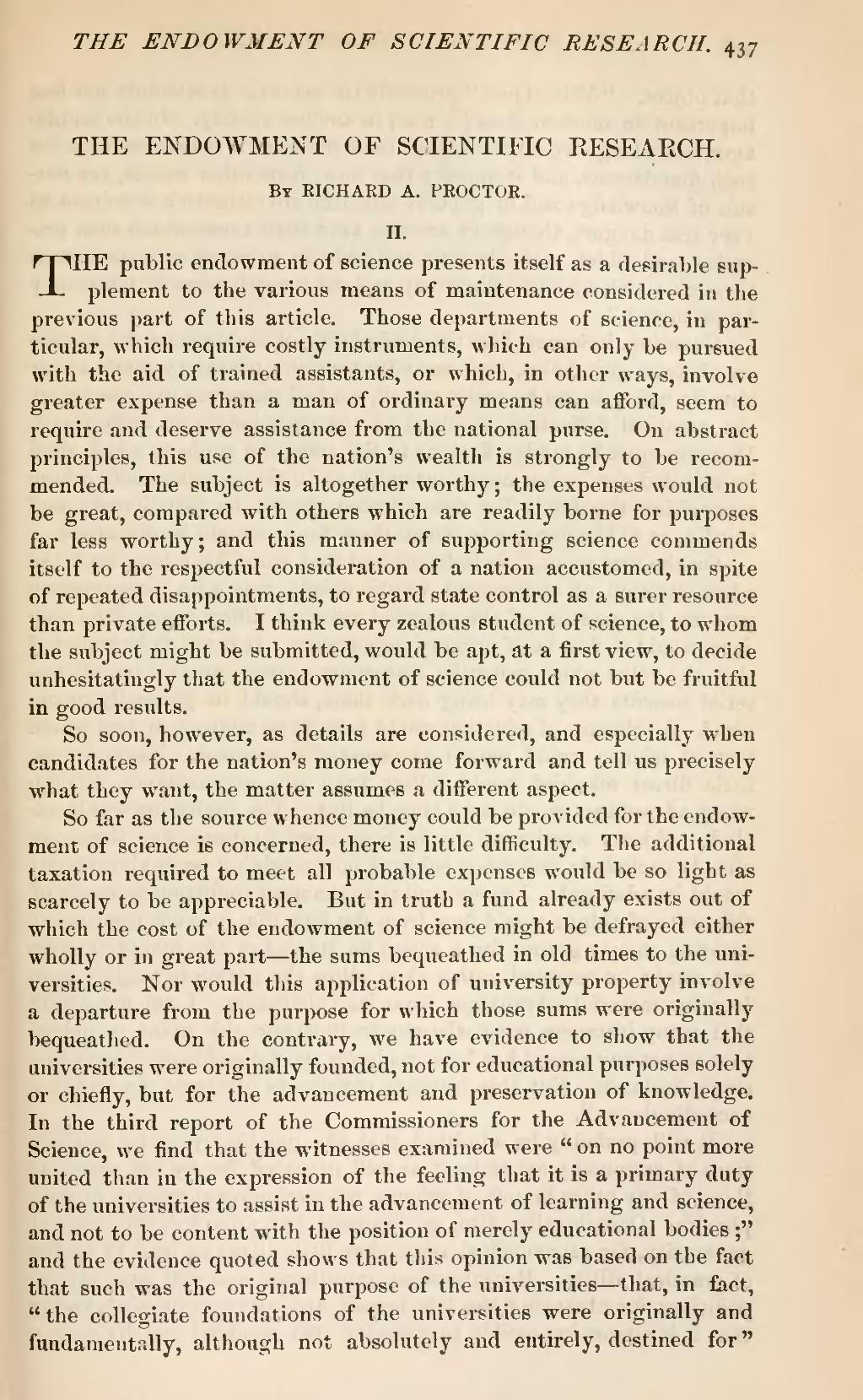| THE ENDOWMENT OF SCIENTIFIC RESEARCH. |
By RICHARD A. PROCTOR.
II.
THE public endowment of science presents itself as a desirable supplement to the various means of maintenance considered in the previous part of this article. Those departments of science, in particular, which require costly instruments, which can only be pursued with the aid of trained assistants, or which, in other ways, involve greater expense than a man of ordinary means can afford, seem to require and deserve assistance from the national purse. On abstract principles, this use of the nation's wealth is strongly to be recommended. The subject is altogether worthy; the expenses would not be great, compared with others which are readily borne for purposes far less worthy; and this manner of supporting science commends itself to the respectful consideration of a nation accustomed, in spite of repeated disappointments, to regard state control as a surer resource than private efforts. I think every zealous student of science, to whom the subject might be submitted, would be apt, at a first view, to decide unhesitatingly that the endowment of science could not but be fruitful in good results.
So soon, however, as details are considered, and especially when candidates for the nation's money come forward and tell us precisely what they want, the matter assumes a different aspect.
So far as the source whence money could be provided for the endowment of science is concerned, there is little difficulty. The additional taxation required to meet all probable expenses would be so light as scarcely to be appreciable. But in truth a fund already exists out of which the cost of the endowment of science might be defrayed either wholly or in great part—the sums bequeathed in old times to the universities. Nor would this application of university property involve a departure from the purpose for which those sums were originally bequeathed. On the contrary, we have evidence to show that the universities were originally founded, not for educational purposes solely or chiefly, but for the advancement and preservation of knowledge. In the third report of the Commissioners for the Advancement of Science, we find that the witnesses examined were "on no point more united than in the expression of the feeling that it is a primary duty of the universities to assist in the advancement of learning and science, and not to be content with the position of merely educational bodies;" and the evidence quoted shows that this opinion was based on the fact that such was the original purpose of the universities—that, in fact, "the collegiate foundations of the universities were originally and fundamentally, although not absolutely and entirely, destined for"
